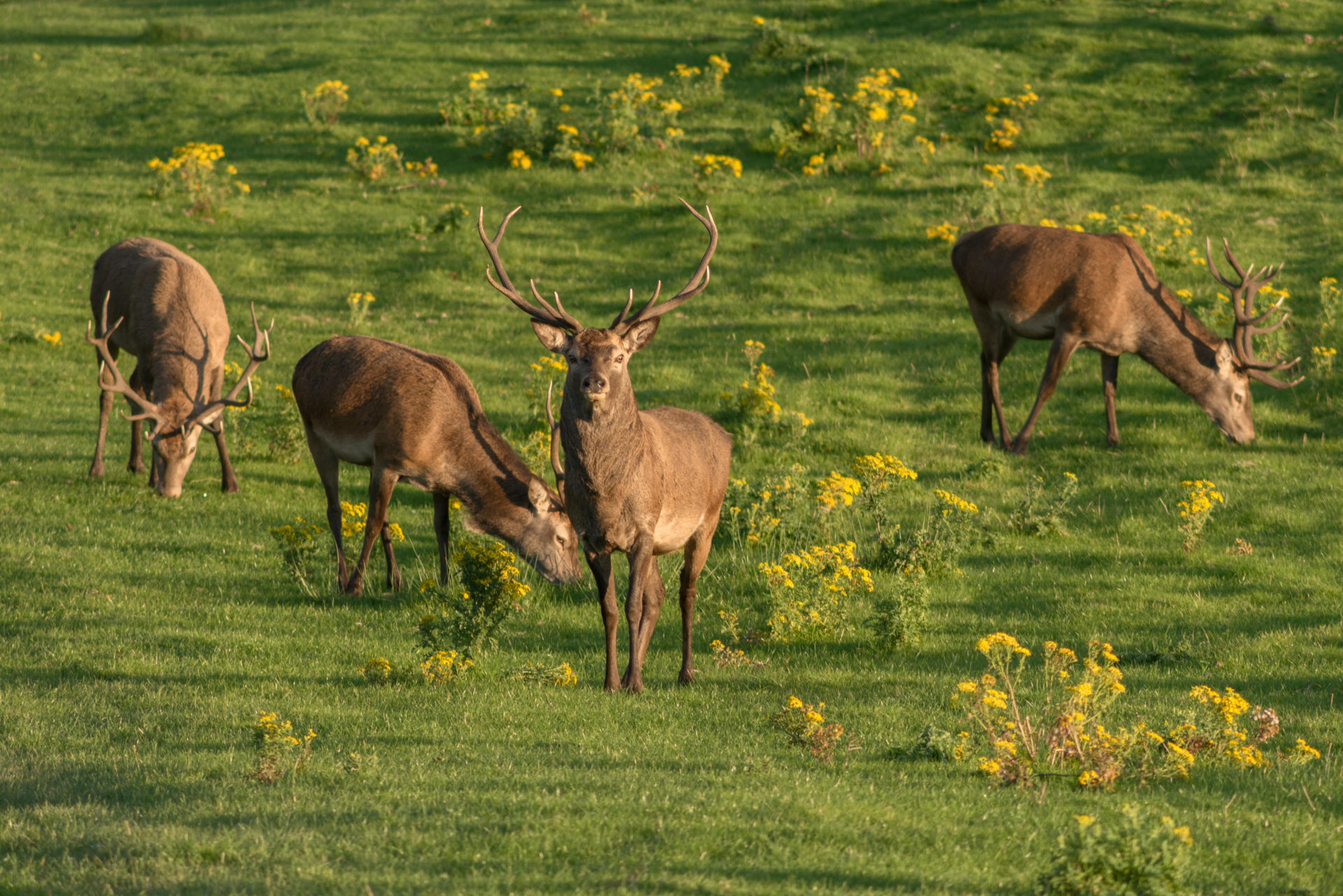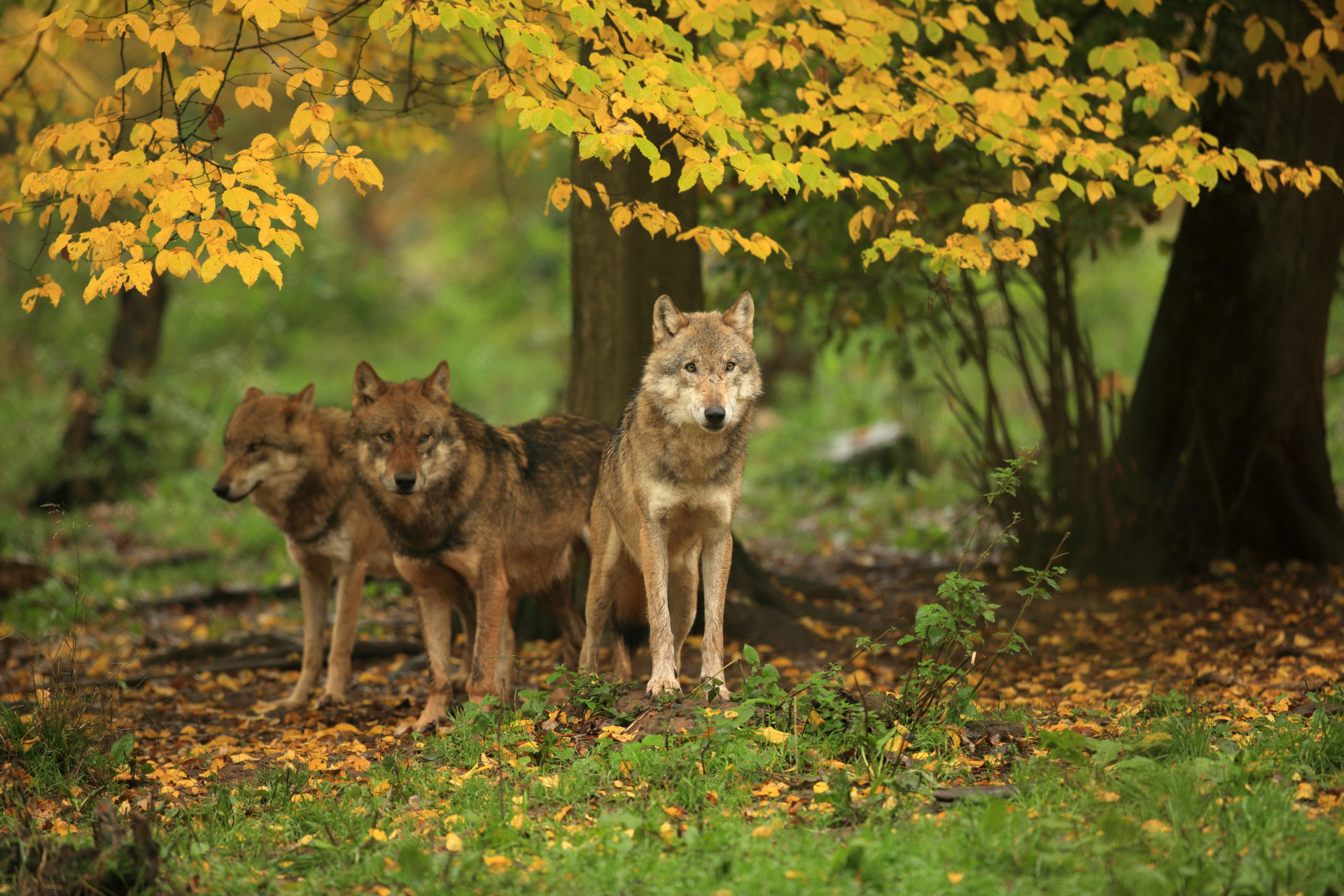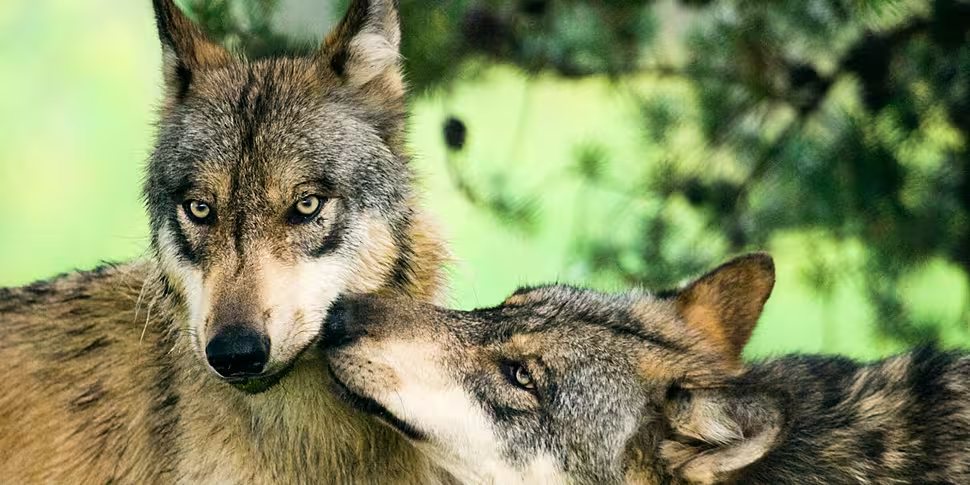Ireland should reintroduce wolves to reverse a “dramatic increase” in road accidents, an environmentalist has urged.
2022 has been a particularly treacherous year for motorists but few fatalities are down to deer; in 2018 there were only 100 reported road traffic collisions involving deer in Ireland.
However, Killian McLaughlin of Wild Ireland believes that releasing wolves to hunt the deer population would make driving safer - citing a study by American economist Jennifer Raynor.
“When the wolf returned [to Wisconsin], she found that road traffic accidents reduced by 24% - so almost a quarter,” Mr McLaughlin told Newstalk Breakfast.
“She was able to quantify that into dollars and it came out at a saving of $11 million a year.”
The study also found that deer culling in neighbouring states “did not invoke the same response in deer to stay away from the roads”.
 F3E79M Young red deer Cervus Elaphus grazing on green meadow in the sunset light, Killarney National Park County Kerry Ireland
F3E79M Young red deer Cervus Elaphus grazing on green meadow in the sunset light, Killarney National Park County Kerry IrelandMac tíre
Wolves went extinct in Ireland at some point during the 18th century but occasionally people have proposed reintroducing them.
Green party leader Eamon Ryan is a prominent advocate, believing it would, “Bring back a balance of ecology in the the sense that those wolves would prey on deer that are holding back forestry at the present time.”
The reintroduction of wolves to Yellowstone National Park in 1995 dramatically changed the local ecosystem - thinning out the elk population. This in turn gave the park’s willow trees more opportunity to grow - something that helped the park’s beaver population to return from the brink of extinction.
 EBNEF4 European gray wolf (Canis lupus lupus), three wolves in autumn forest, Germany, Bavaria
EBNEF4 European gray wolf (Canis lupus lupus), three wolves in autumn forest, Germany, BavariaAnd despite what you might have gleaned from fairy tales, wolves pose a very small risk to humans - an 18 years study by Norwegian scientists found that the risk of getting attacked by one was “above zero but too low to calculate.”
“They looked at wolf attacks across the entire world, they found that the majority of them that were carried out by wolves were provoked,” Mr McLaughlin said.
“So, in other words, humans were trying to kill them or capture them - or wolves that had rabies and, of course, we don’t have rabies in this country.”
Main image: A pair of wolves. Picture by: Alamy.com









